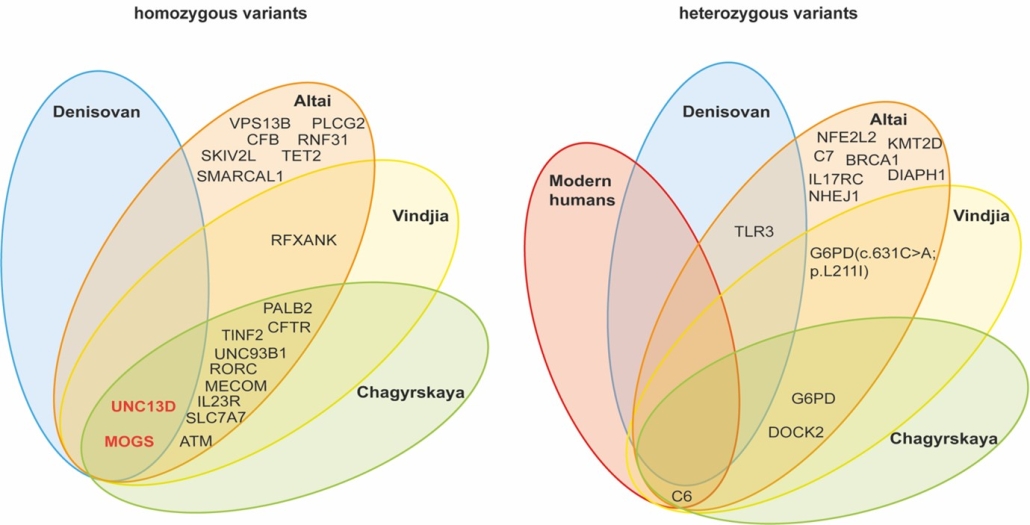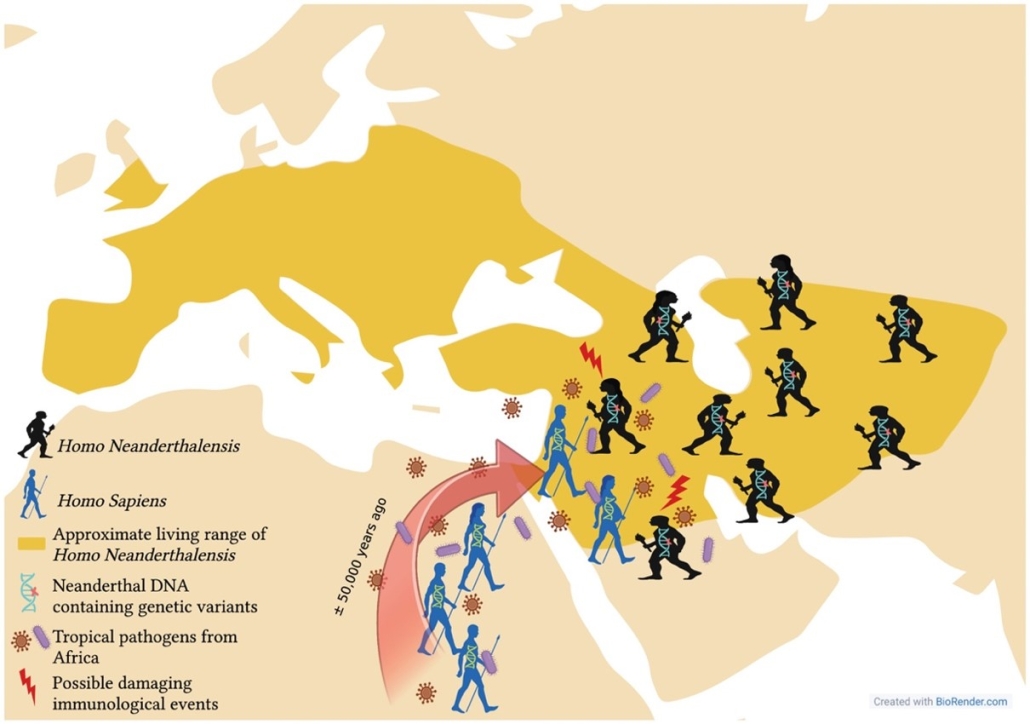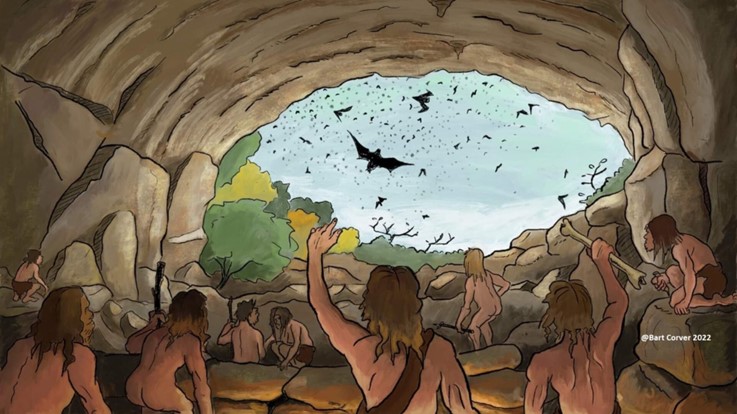Did gene variants involved in immune deficiency contribute to the extinction of Neanderthals?
Illustration by Bart Corver
Despite the extinction of Neanderthals and other archaic humans about 40.000 years ago, 1 to 6% of modern humans’ genome is still made up of DNA inherited from Neanderthals. Several of those genes we inherited by interbreeding have a positive impact on the strength of our immune system and may even have provided protection in some people against COVID-19. Other Neanderthal gene variants however increase our susceptibility to autoimmune diseases such as systemic lupus erythematosus, Behçet’s disease, Chron’s disease and type 2 diabetes.
Archaic humans commonly expressed variants in immune deficiency genes
Researchers from the team of Prof. Martin van Hagen (Clinical immunology department of Erasmus MC in Rotterdam, the Netherlands) wanted to know whether certain damaging variants in immune deficiency genes, which are rare in modern humans, may have been expressed in Neanderthals. These gene variants causing disruption in immune responses can lead to immune regulatory disorders in modern humans. Such disorders are also called inborn errors of immunity (IEI). Interestingly, they found 3 homozygous variants in two different IEI-associated genes to be commonly expressed in various groups of Neanderthals, but not in modern humans or primates. In fact, mutations in these genes in modern humans are associated with hemophagocytic syndrome (HLH) and congenital disorders of glycosylation.

Did encounters with pathogens introduced by modern humans lead to Neanderthals’ extinction?
It is an interesting coincidence that the time of the extinction of Neanderthals overlaps with that of the migration of our ancestors out of Africa. HLH often only develops after the patient has come into contact with a specific pathogen, such as Epstein-Barr virus (EBV) and mycobacteria. The researchers hypothesize that these gene variants may have been harmful to the Neanderthals once they started coming into contact with new pathogens, introduced by their interactions with modern humans. These unfortunate pathogen encounters may ultimately have contributed to the extinction of the Neandertals. While this fascinating research is still ongoing, a first article describing the research team’s initial findings has been published by Zhou et al.





